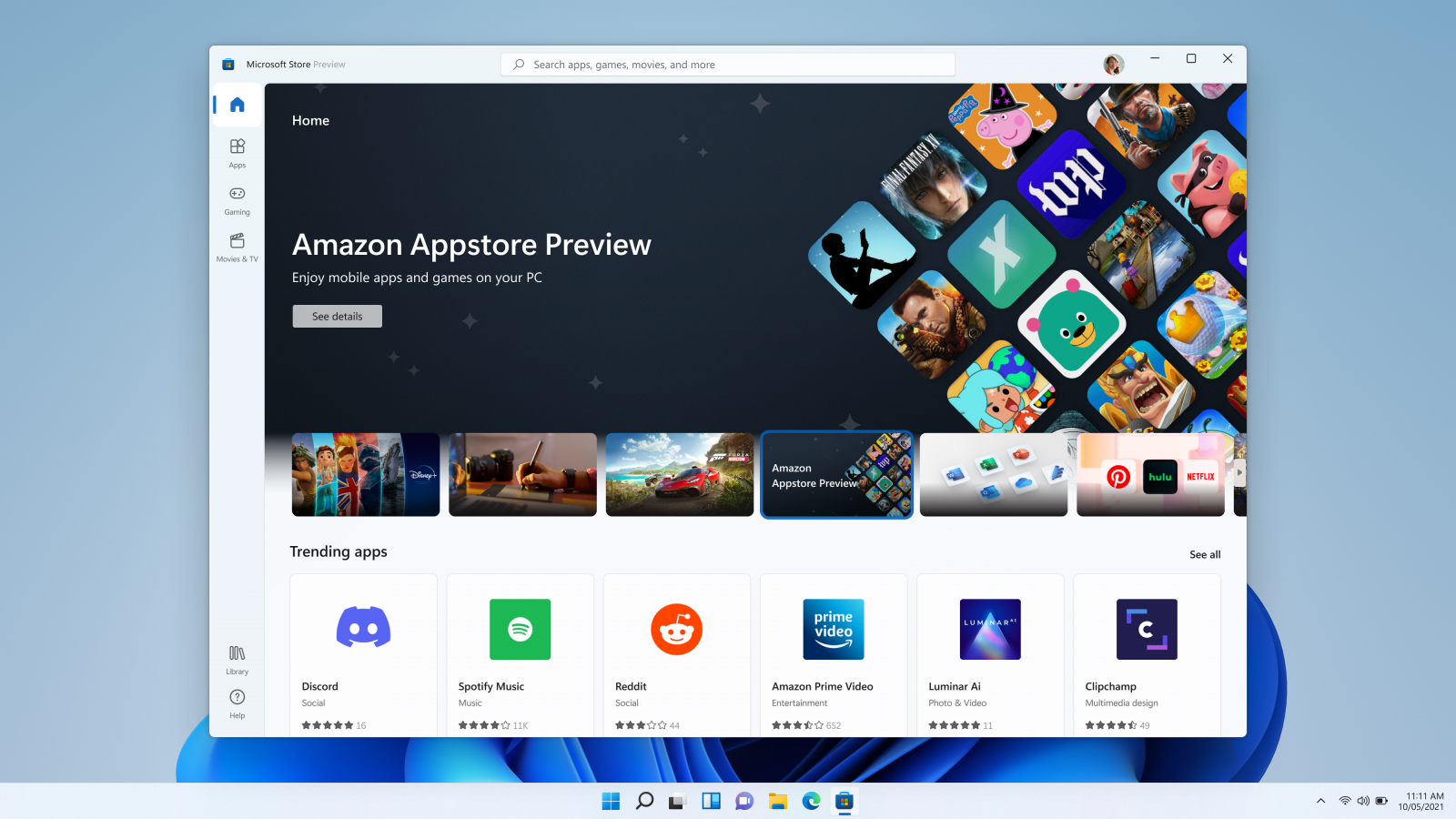
It was only a few years ago — in 2021 — that Windows 11 gained official support for Android apps thanks to a Microsoft-maintained VM called the Windows Subsystem for Android (WSA). With the WSA, Windows 11 users could install and run nearly the full range of apps for Android, optionally through Amazon’s Android marketplace — the Amazon Appstore — thanks to an Amazon-Microsoft deal.
Now, Windows 11 is losing official Android app support — and access to the Amazon Appstore along with it.
Microsoft today announced that it plans to stop maintaining the WSA within the year. Windows 11 users who’ve installed the Amazon Appstore or Android apps will continue to have access to those apps through March 5, 2025 — but not after. And starting tomorrow, Amazon plans to prevent new users from downloading the Amazon Appstore from the Microsoft Store, Microsoft’s app store for Windows.

Image Credits: Microsoft
“Customers may continue using Amazon Appstore apps that they previously installed and will still be able to receive app updates [after March 6]” Amazon wrote in a blog post published today. “Developers will no longer be able to submit net new apps targeting Windows 11 after March 5, 2024, but developers with an existing app can continue to submit app updates until Amazon Appstore on Windows 11 is fully discontinued.”
As Ars Technica’s Andrew Cunningham notes, the WSA, while a convenient way to run Android apps on Windows. was limited from the start thanks to its inability to access the Google Play Store, the official Android app store — at least not without workarounds. The Amazon Appstore had a smaller selection, doubtless driving users in many cases to native Windows or web-based versions of apps they could’ve installed through the WSA.
Now, just because Microsoft’s ending support for the WSA doesn’t mean it’ll become impossible to run Android apps on Windows. A number of third-party alternatives exist, including Waydroid, which provides support for Android apps via Linux-based system containers, and Bluestacks, an Android emulator for Windows and macOS.
techcrunch.com




